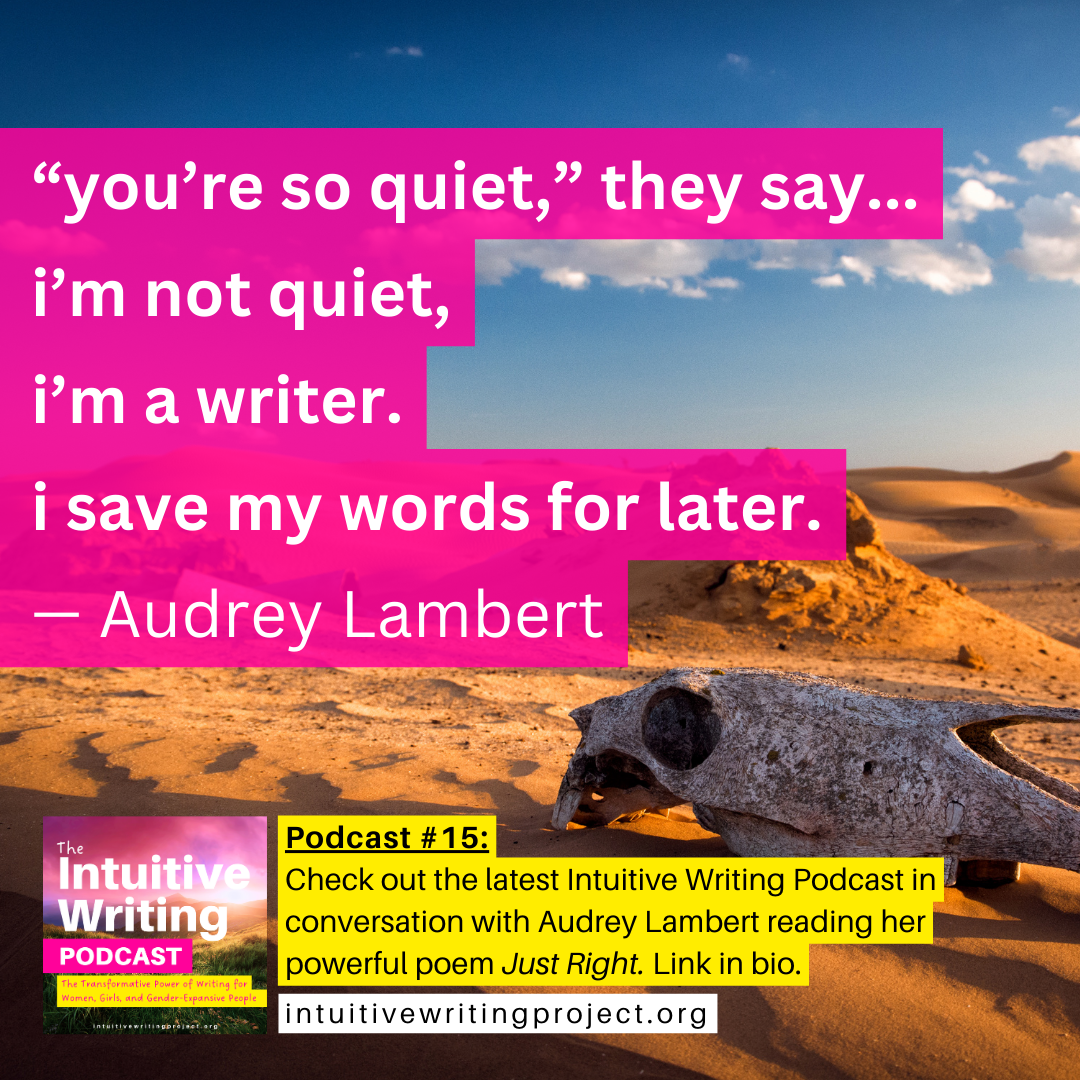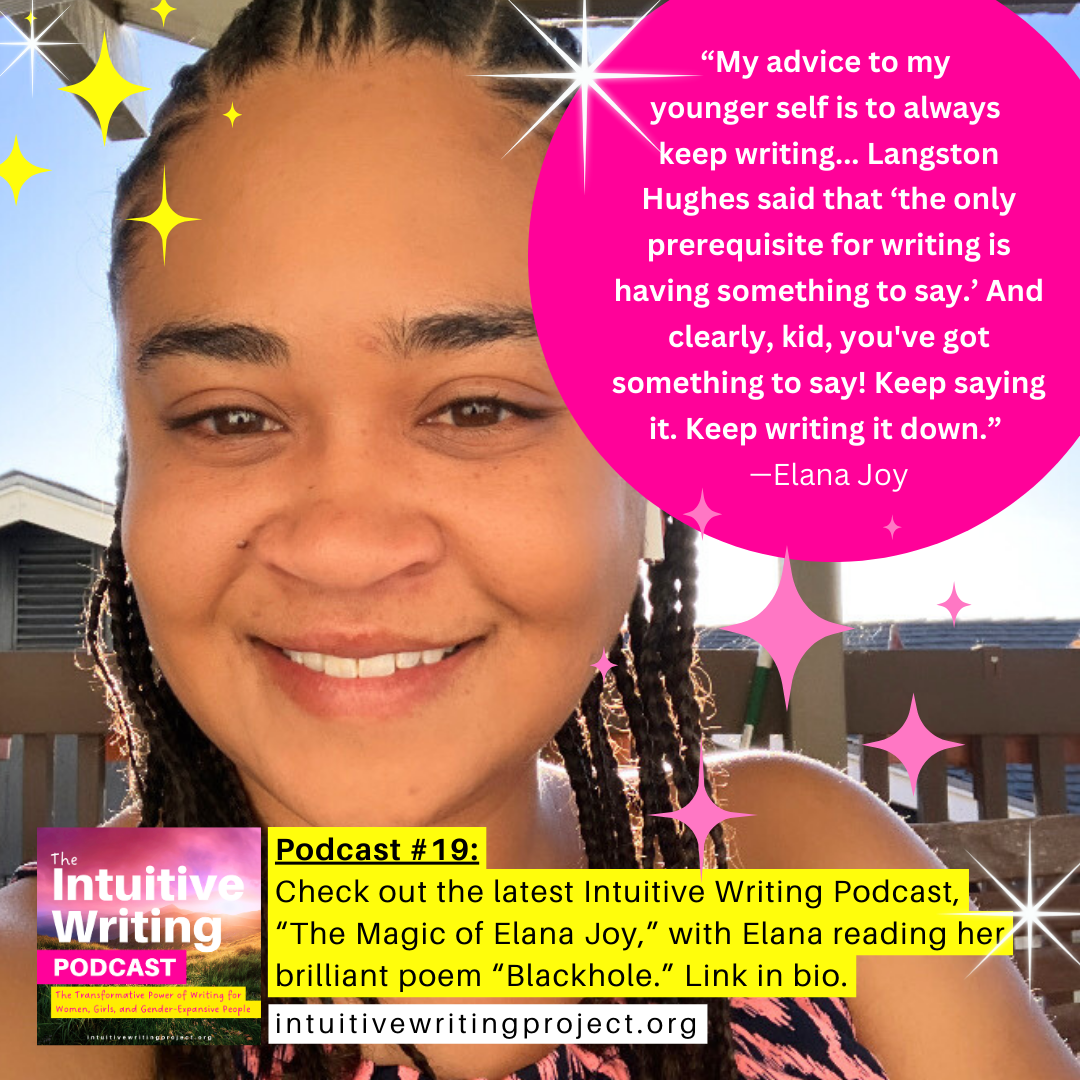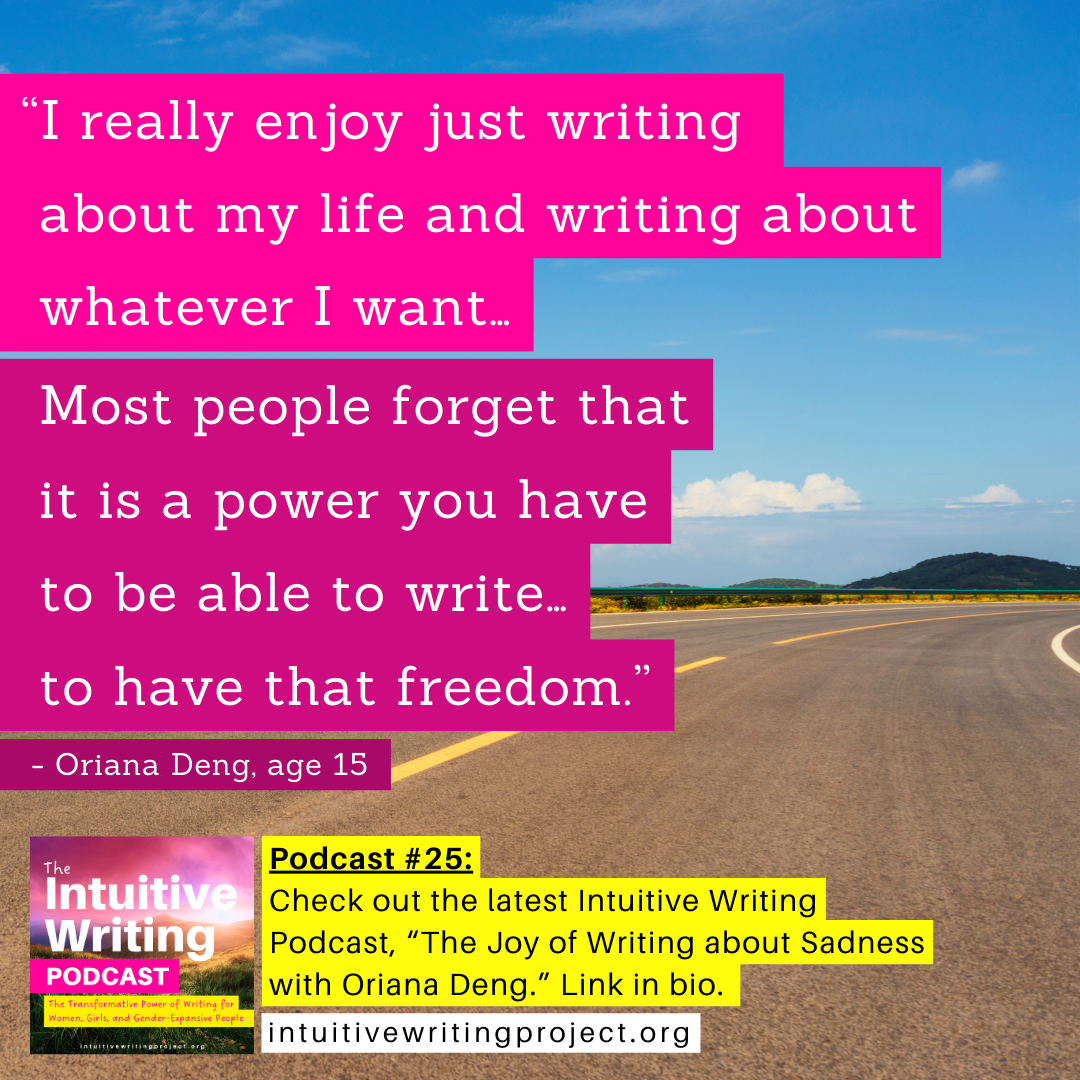Episode Transcript
[00:00:00] Hello and welcome to the Intuitive Writing Podcast, a production of the Intuitive Writing Project, an intuitive leadership program for young women and gender expansive youth ages 12 and up, empowering them to trust their voice and own their strengths as the leaders of their own life.
[00:00:21] My name is Elizabeth and I created this program because it was what I wanted and needed when I was young.
[00:00:28] Today I will be doing a very short story solo podcast just to give parents a quick overview of what happens in our classes since unfortunately you don't get the chance to attend yourselves. Although I just want to put it out there to any mom who wants to experience the magic for herself, just shoot me a note and I'd love for you to try a woman's class anytime for free. Okay, so what happens in a average class, regardless of the theme? There's three parts. There's the inspirational content, there's the writing, and then there is the positive feedback and empowerment phase. The feedback is the best part. Breaking it down a little bit more. We always start with a check in. I feel like that's really important to bring the girls back together, reconnect them with each other. If it is a new group, obviously the question that I ask everyone is more general, like tell us about your favorite favorite book or movie. Once they get to know each other better, I have them all answer more self inquiry questions like what is one thing from the past week that you are most proud of yourself for? This is a really profound question to ask because we tend not to say nice things about ourselves. In fact the opposite in girl culture. So this requires everyone to think about something that is powerful and strong in herself, which is reinforced later in the feedback section. I'll get to that in a moment. If it is a new group, I always start by reviewing the Intuitive Writing Project guidelines. Our guidelines are inspired by the Amherst writing method, but we have made them our own.
[00:02:17] So one of the first guidelines that really sets the tone for class is the idea that, number one, everyone is a storyteller with their own authentic voice.
[00:02:30] Everyone is the expert and the author of their own life.
[00:02:35] And to tell your story is to claim your power.
[00:02:40] A final guideline, which is the central tenet in terms of how we give feedback is this. As we take turns reading our words out loud, we listen to each other with an open mind and an open heart. Much as we listen to music, noticing the words, phrases and ideas that resonate with us, giving only positive, specific feedback, we share what stands out for us or stays with us. Instead of giving advice or suggestions, we focus on the Strengths of the writing, reflecting back the lines, phrases or ideas that felt most meaningful to us.
[00:03:24] So once we've checked in, everyone knows the guidelines. The second phase is inspirational content.
[00:03:31] I create new content every single week, except for an intuitive leadership that is a pre written curriculum, although I am always updating it for every other class, I bring in content that is relevant to the age, to the interest and the preferences of the girls in the class. We keep classes small, no more than six, so I can really tailor content.
[00:03:53] But everything is grounded in the idea of authentic self expression, self empowerment, self acceptance, self love and self trust. I have a collection of carefully curated news stories that relate to teens, poetry, short stories, interview excerpts, editorial excerpts and inspiring quotes, along with little tidbits every week on story intelligence, which is how you tell stories in a powerful, authentic way, talking about things like the heroine's journey, character development, plot, the evolution of a character's growth, which is of course a metaphor for our own growth, and whatever feels most inspiring to the interests of the girls in the class.
[00:04:47] At the end of the reviewing this content, sort of setting the theme for the day. I usually give at least three, sometimes a lot more. Seven, perhaps writing prompts. And a prompt is just an idea, a suggestion, something to get you started. If you have nothing in your head at the moment. But I always say these are just ideas. Whatever you're inspired to write, whatever is up for you right now, write about that.
[00:05:15] Depending on the age and the maturity of the writers, we write for anywhere between 20 to 40 minutes.
[00:05:24] Everyone goes off screen. They can listen to music, get cozy, sit inside, outside, wherever they want to be, really get into their own internal experience.
[00:05:34] At the set time, I call everyone back and we start sharing.
[00:05:39] It sounds daunting, but it's actually only daunting the first time. After that, girls love it, because what happens is you read something regardless of what you're thinking in your head. A lot of times the inner critic is bearing down on us until we read our words out loud. And then everyone goes around, including me, and shares what we thought was powerful, inspiring, moving, relevant, relatable, interesting, moving to us. And that's where girls come alive. I watch them sit up taller, their eyes get brighter, they smile. You can't help it, because people are validating your most precious internal experience. They're showing you that what you have to say is important and most importantly, relatable. Girls often say that they feel the writing is relatable, and that's such a great feeling to know, as I often say, what is most personal is also most universal. And at the very end of class, I always ask girls, how do you feel about your writing now compared to while you were writing it or before you started reading it out loud? At the end, girls will always say that they can now see that what they wrote was interesting or much better than they thought, which is basically saying they realize that what is inside of them is better, greater, more interesting, more beautiful than they realized. And that's what happens in a class that's very broad strokes. Obviously, there's many more nuances I could tell you about, but I'm trying to keep this short. If you have any questions and would like to learn more, contact me anytime. And on behalf of all the young writers at the Intuitive Writing Project, we thank you for listening. May you always speak your truth and know that it matters.


